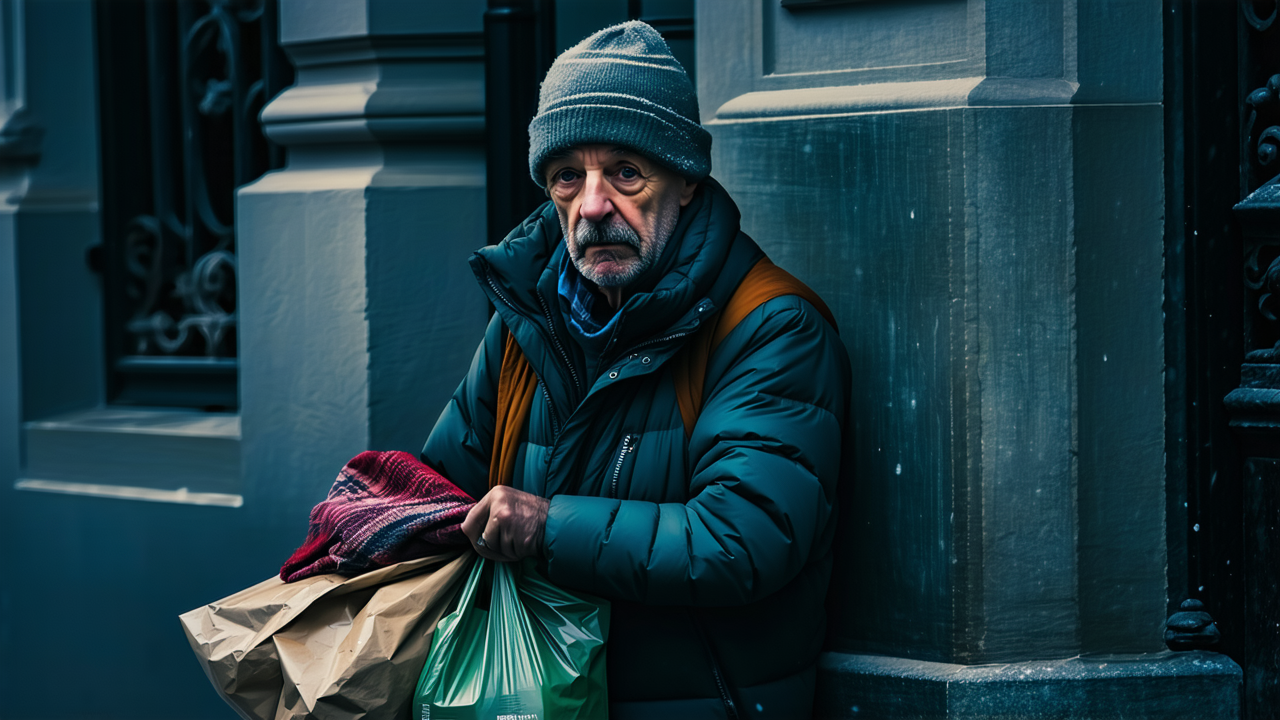Auckland Woman Horrified as Council Attempted to Remove Rough Sleepers’ Belongings
Auckland Woman Horrified as Council Attempted to Remove Rough Sleepers’ Belongings
A woman in Auckland has expressed deep concern after witnessing city workers attempting to remove personal items belonging to rough sleepers at a local shelter. Pip Scott, who regularly interacts with the homeless community, had recently donated tents, sleeping bags, and a pillow to those staying at the Grafton United Cricket Club. Her horror was compounded when council workers arrived to take the very items she had given to help those in need.
Scott, who walks to work with her dog and often engages in conversations with the homeless, described the people she meets as “friendly” and “just going through a rough time.” She said that the increasing number of people on the streets has been alarming, and the sight of people struggling to find warmth and shelter has become more common.
One morning, Scott noticed council workers loading black rubbish sacks into a van and collecting items from the shelter. The rough sleepers had stored their belongings in a small pile under the bleacher seats, but they were not present at the time. Scott intervened, telling the workers that taking the items would be cruel and leave the homeless with nothing to protect themselves from the cold.
“They had found the place where the people had stashed all their warm stuff to sleep in and they were pulling it down out of its place,” Scott said. “I walked straight up to them and said, ‘Do not take their stuff – what are they going to do? They’ve got nothing else to keep them warm and it’s been freezing this week.’”
The council workers left without taking the items, but Scott was deeply upset by the attempt. “It’s upsetting and I don’t know what the answer is, but taking people’s stuff from them is definitely not the answer,” she said. “Imagine coming back from your day and you’re about to bed down to sleep on some concrete stairs, and someone’s taken your last warmth or barrier for that. I just think it’s cruel.”
Adrian Wilson, an Auckland Council compliance manager, explained that rough sleepers often lack designated areas to store their belongings. He said that the council is exploring solutions for this issue and that unclaimed items, including tents and sleeping bags, are retained for six months before being disposed of. Council staff make efforts to identify the owners of unattended items and leave notices for them to collect their belongings.
The council has reported a significant rise in homelessness, with the number of rough sleepers increasing by 90% since last September. The Ministry of Housing and Urban Development’s latest report showed that 14% of people leaving emergency housing were likely to become homeless. This has led to increased costs for the council in managing the situation and addressing the mental health needs of those affected.
Dickie Humphries, head of community impact for Auckland Council, acknowledged the growing concern over the rise in rough sleeping. He emphasized that the council is working with social service organizations and actively patrolling the city to address residents’ concerns. However, he noted that the situation is complex and that no single institution can solve the problem alone.
“We are here to make sure that the city in this region is a thriving city for all,” Humphries said. “Auckland is experiencing homelessness that is the antithesis of that vision, so we find it very concerning.”
As the council continues to grapple with the growing homelessness crisis, the incident involving Pip Scott highlights the emotional and ethical dilemmas that arise when city services attempt to manage the needs of the most vulnerable in society.
